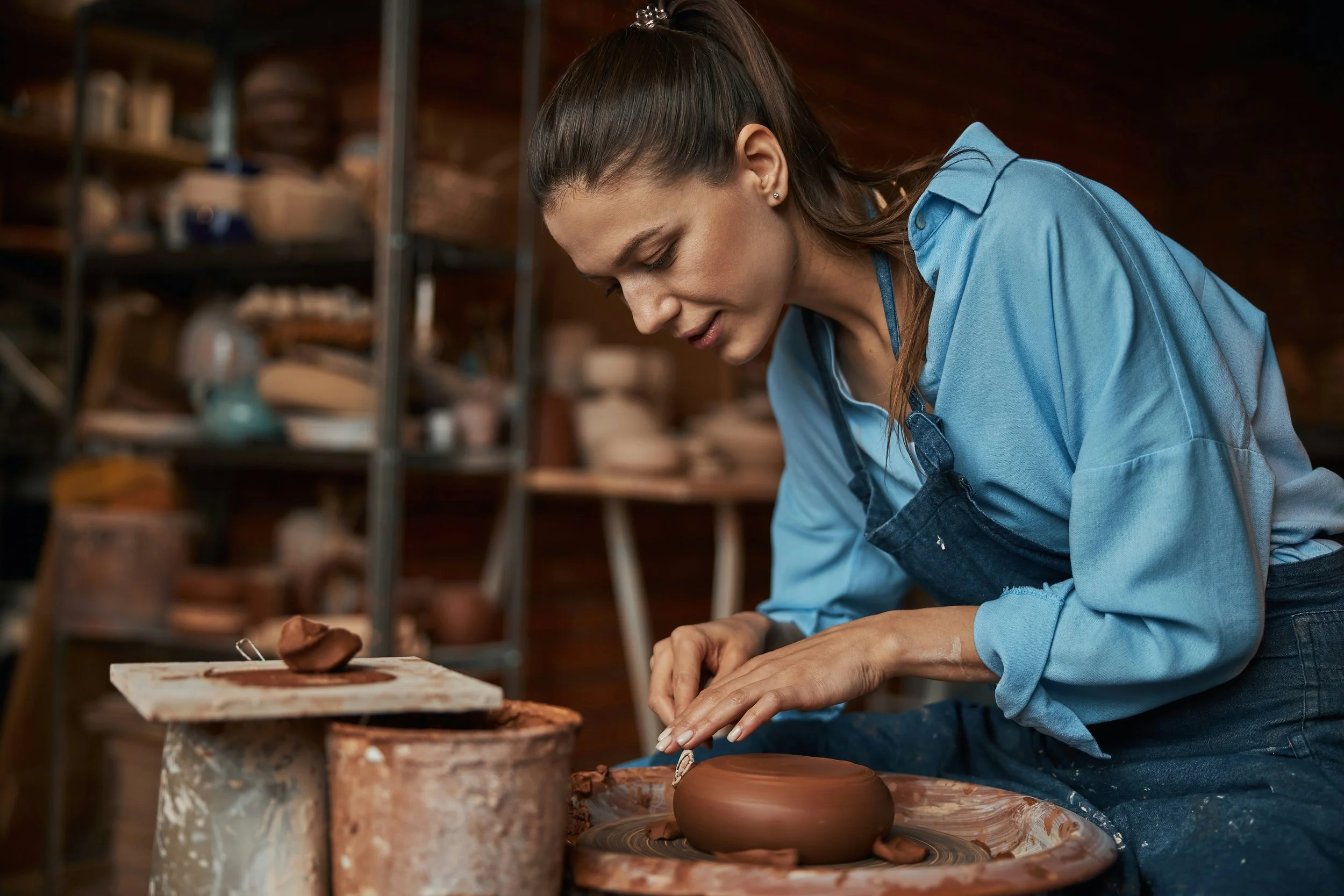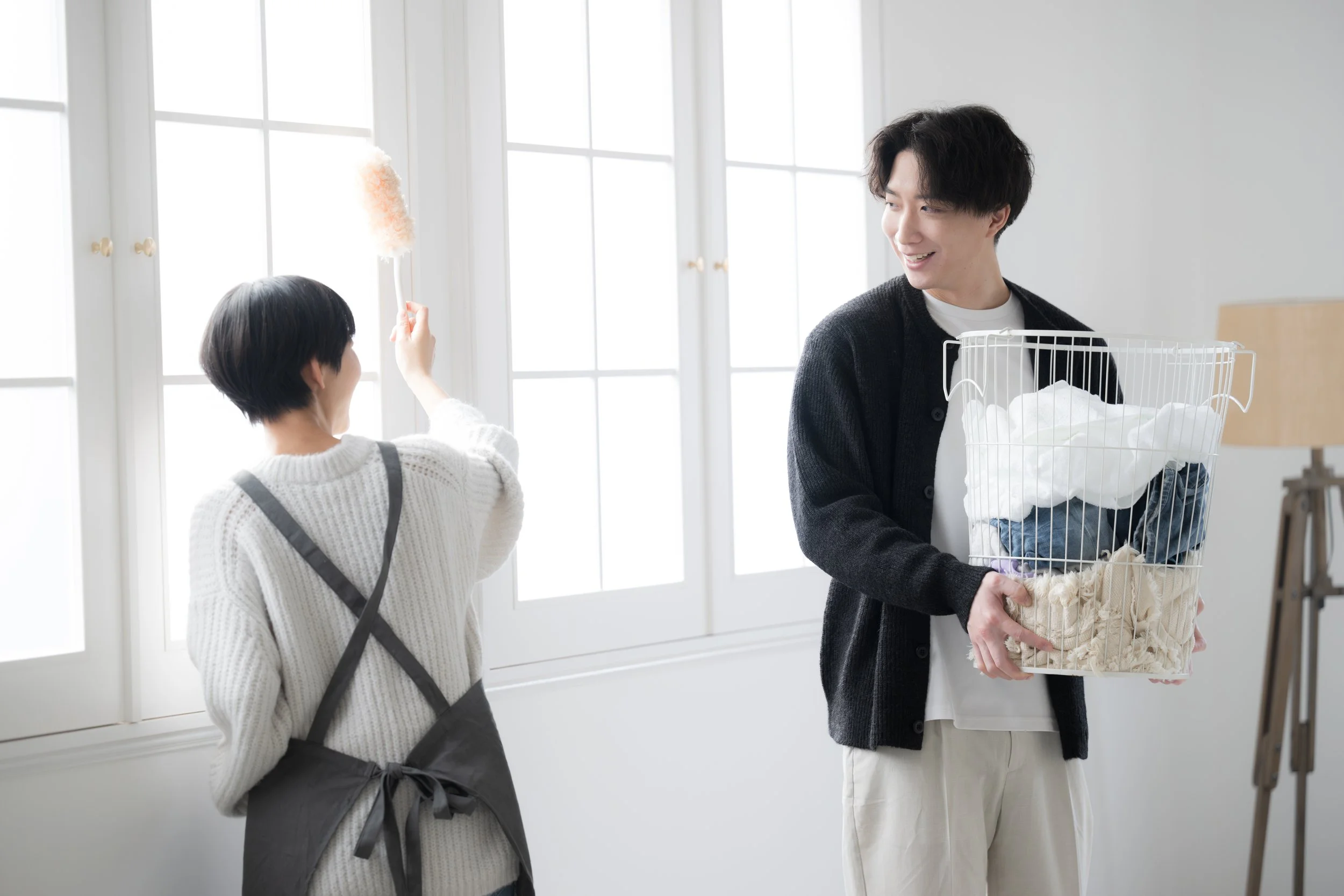Synergistic Motivational Design
How you relate to others.
Ambition-Driven Relationships
Your relationships align seamlessly with your ambitions, driven by a strong dedication to realizing a significant vision. You carefully surround yourself with people who either contribute directly to your goals or are the very inspiration behind your efforts. Partners in your journey are more than just companions—they are active participants, supporting the sacrifices and hard work required to make your dreams a reality, with mutual support being crucial for the journey.
Enriching Worldview Through Diverse Connections
In cultivating diverse friendships and connections across different industries, you enrich your worldview and gain invaluable insights. Your open-mindedness helps you adapt to shifting situations and challenges. The close bonds you form with colleagues and employees often blur the line between professional and personal relationships, where shared goals and sacrifices foster camaraderie, with loyalty serving as a cornerstone of trust and reliability.
Strategic and Adaptive Relationship Management
A strategic approach underpins your relationships, ensuring each interaction aligns with your vision. Beyond loyalty, you value resilience and adaptability in those around you, recognizing that challenges are inevitable. Your high emotional intelligence allows you to adjust as needed, offering either encouragement or tough love, and you prioritize clear communication to create a shared sense of purpose and ownership, balancing ambition with care to keep goals and people aligned.
You will have friends from all walks of life.
You can be very close to those that you work with and that work for you.
You want someone in your life who will be a partner in the work and who understands the sacrifice that it takes to get things done.
Loyalty is one of the most important elements in your relationships.
You believe that when work pulls you away from close relationships, it's worth it because you're ultimately doing things that will greatly benefit them.
synergistic Motivational Design
Meet the other designs
meet others Synergistic Design
-
People with this design are skilled at creating systems and structures that bring harmony and efficiency to processes and relationships. They are organized, persuasive, and visionary, excelling at coordinating efforts to achieve common goals. Their motivation comes from the desire to create a functioning whole where all parts work together seamlessly.
-
Synergistic Designs
Perception: Synergistic-driven individuals often see other synergistic designs as partners who share their commitment to creating harmony, efficiency, and integration. They admire each other’s ability to think systemically and coordinate complex efforts.
Critique: While they may align well, they might also see each other as sometimes too focused on maintaining balance or structure, potentially at the expense of innovation or flexibility. Synergistic designs may feel that they could benefit from embracing more dynamic, spontaneous elements.
Appreciation: Synergistic designs appreciate each other’s dedication to creating well-functioning, harmonious systems. They value the shared focus on integration and collaboration, which helps ensure that projects are successful and sustainable.
Intuitive Design
-
People with this design focus on observing and understanding the deeper motivations behind actions and situations, aiming to illuminate the truth and facilitate change. They are analytical and introspective, constantly seeking clarity and insight. Their drive is rooted in revealing and comprehending the essence of people, places, and things.
-
Intuitive Designs
Perception: Intuitive-driven individuals often see synergistic designs as harmonizers and integrators, valuing their ability to bring different elements and people together in a cohesive way. They admire their knack for creating balance and unity.
Critique: They might perceive synergistic designs as sometimes too focused on maintaining harmony, potentially at the expense of exploring deeper, more complex insights or embracing necessary conflict. Intuitive designs may wish for more openness to the unknown or unexplored.
Appreciation: Intuitive designs appreciate the synergistic design’s ability to create environments where diverse ideas and people can work together effectively. They value their talent for fostering collaboration and ensuring that everyone’s strengths are utilized.
Enterprising Design
-
People with this design are focused on achieving goals through strategic planning, action, and continuous improvement. They are competitive, enterprising, and goal-oriented, always seeking ways to advance and excel. Their motivation is driven by the challenge of moving forward and accomplishing objectives.
-
Enterprising Designs
Perception: Enterprising-driven individuals often see synergistic designs as strong leaders and coordinators, recognizing their ability to bring people and resources together to achieve ambitious goals. They admire their capacity to create synergy and drive progress.
Critique: They might perceive synergistic designs as sometimes too focused on consensus-building or maintaining the status quo, potentially slowing down decision-making or action. Enterprising designs may wish for a more decisive, goal-oriented approach.
Appreciation: Enterprising designs appreciate the synergistic design’s leadership and organizational skills, which help ensure that projects are completed efficiently and effectively. They value their ability to align different elements towards achieving significant outcomes.
Industrious design
-
People with this design emphasize the importance of providing consistent and reliable support to ensure the functionality and well-being of systems and individuals. They are practical, dependable, and detail-oriented, thriving on routine and stability. Their motivation comes from being the backbone that keeps everything operational and alive.
-
Industrious Designs
Perception: Industrious-driven individuals typically see synergistic designs as organized and efficient, recognizing their ability to coordinate efforts and ensure that tasks are completed in a well-structured manner. They appreciate their focus on creating effective systems.
Critique: They might perceive synergistic designs as sometimes being too process-oriented, potentially getting bogged down in details or group dynamics at the expense of direct action. Industrious designs may feel that synergistic designs could benefit from more straightforward, task-focused approaches.
Appreciation: Industrious designs value the synergistic design’s ability to maintain order and keep projects on track. They admire their skill in ensuring that all moving parts work together smoothly to achieve a common goal.
Economical Design
-
People with this design excel at managing, accumulating, and distributing resources to meet present and future needs. They are meticulous, conservative, and resourceful, with a strong focus on financial security and practical decision-making. Their drive is rooted in ensuring that necessary provisions are always available.
Synergistic Motivational Design (Order): People with this design are skilled at creating systems and structures that bring harmony and efficiency to processes and relationships. They are organized, persuasive, and visionary, excelling at coordinating efforts to achieve common goals. Their motivation comes from the desire to create a functioning whole where all parts work together seamlessly.
Experiential Motivational Design (Fulfillment): People with this design seek to cultivate a life filled with joy, satisfaction, and meaningful experiences. They are free-spirited, creative, and focused on spreading happiness and peace. Their drive is fueled by the pursuit of activities and lifestyles that bring continuous contentment and fulfillment.
-
Economical Designs
Perception: Economical-driven individuals generally see synergistic designs as effective managers who can optimize resources by creating systems that enhance efficiency and reduce waste. They recognize their ability to make the most of what’s available.
Critique: They might perceive synergistic designs as sometimes too focused on the bigger picture or the long-term vision, potentially overlooking immediate practicalities or resource constraints. Economical designs may wish for more attention to cost-efficiency and practicality.
Appreciation: Economical designs value the synergistic design’s ability to create systems that are both effective and sustainable. They appreciate their focus on ensuring that all parts work together in a way that maximizes resource use and minimizes waste.
Conceptual Design
-
People with this design are centered around the pursuit of new ideas, principles, and methodologies through exploration and learning. They are curious, patient, and logical, enjoying the process of uncovering and understanding the "how" of the world. Their drive is fueled by the desire to innovate and expand knowledge.
-
Conceptual Designs
Perception: Conceptual-driven individuals may view synergistic designs as system thinkers who can see the bigger picture and understand how different ideas and components fit together. They respect their ability to integrate various concepts into a cohesive whole.
Critique: However, they might see synergistic designs as sometimes being too focused on integration and structure, potentially limiting creative freedom or the exploration of unconventional ideas. Conceptual designs may wish for more flexibility and openness to abstract thinking.
Appreciation: Conceptual designs appreciate the synergistic design’s ability to create comprehensive systems that allow innovative ideas to be effectively implemented. They value their talent for making complex concepts work in practice by ensuring all parts are aligned.
experiential Design
-
People with this design seek to cultivate a life filled with joy, satisfaction, and meaningful experiences. They are free-spirited, creative, and focused on spreading happiness and peace. Their drive is fueled by the pursuit of activities and lifestyles that bring continuous contentment and fulfillment.
-
Experiential Designs
Perception: Experiential-driven individuals often see synergistic designs as organized and capable of creating enjoyable and fulfilling experiences by ensuring that all elements work together smoothly. They admire their ability to coordinate efforts to enhance the quality of life.
Critique: They might perceive synergistic designs as sometimes too focused on structure or process, potentially at the expense of spontaneity and flexibility. Experiential designs may wish for a more relaxed approach that allows for more freedom and creativity.
Appreciation: Experiential designs appreciate the synergistic design’s ability to create environments where experiences are enhanced through careful planning and coordination. They value their talent for ensuring that everything runs smoothly, contributing to a richer, more enjoyable life.
how you see yourself.
If you have a synergistic design driven by a strong order focus, you likely see others through the lens of their ability to contribute to harmony, collaboration, and effective systems. Here’s how you might typically perceive others:
-
You view yourself as highly organized, excelling at creating structure and order. You take pride in your ability to develop systems and processes that enhance efficiency and coherence.
-
You see yourself as a visionary thinker, capable of seeing the big picture and planning strategically. You consider yourself adept at setting long-term goals and aligning various components to achieve a unified vision.
-
You perceive yourself as collaborative and inclusive, valuing teamwork and cooperation. You believe in bringing people together and fostering an environment where diverse talents and perspectives can contribute to a common goal.
-
You tend to see yourself as a harmonizer, skilled at creating balance and harmony within groups or systems. You focus on ensuring that all parts work together seamlessly, avoiding conflict and promoting a sense of unity.
-
You pride yourself on your ability to streamline processes and improve productivity. You often see yourself as an efficiency expert, capable of optimizing workflows and resources.
-
You consider yourself detail-oriented, paying close attention to the finer points that ensure everything runs smoothly. You value thoroughness and precision in your planning and execution.
-
You view yourself as responsible and dependable, often taking on leadership or coordinating roles. You believe in the importance of accountability and see yourself as reliable in ensuring that tasks are completed effectively.
-
You often see yourself as charismatic and persuasive, able to inspire and motivate others. You’re confident in your communication skills and believe in your ability to guide and influence people toward common objectives.
-
While you value structure, you also see yourself as adaptive and capable of adjusting plans when necessary. You recognize the importance of flexibility in maintaining harmony and efficiency.e
Overall, you see others in terms of their ability to contribute to a well-ordered, collaborative, and efficient environment. You value those who are organized, cooperative, and strategic, often gravitating toward individuals who can help create and maintain harmony and productivity within groups or systems.
How you see others.
If you have a synergistic design driven by a strong order focus, you likely see others through the lens of their ability to contribute to harmony, collaboration, and effective systems. Here’s how you might typically perceive others:
-
You tend to appreciate people who are organized and systematic in their approach. You value those who can create and maintain order, contributing to a well-structured environment.
-
You admire individuals who are collaborative and work well in teams. You see value in people who can bring diverse talents and perspectives together, fostering cooperation and unity within groups.
-
You respect others who can think strategically and see the big picture. You appreciate those who are capable of planning for the long term and aligning their efforts with broader goals.
-
You’re drawn to people who promote balance and harmony within groups or systems. You value individuals who can mediate conflicts, create unity, and ensure that everyone is working together smoothly.
-
You tend to see value in those who are efficient and productive. You admire individuals who can streamline processes, optimize resources, and contribute to a more effective workflow.
-
You appreciate others who are detail-oriented and thorough in their work. You respect people who ensure that all aspects of a plan or project are well-executed and precise.
-
You respect those who are responsible and dependable, particularly when it comes to leadership or coordinating roles. You value people who can be counted on to follow through on their commitments and ensure that tasks are completed effectively.
-
You see value in individuals who are adaptive and flexible, especially when circumstances require adjustments. You admire those who can maintain harmony and efficiency, even in changing situations.
-
You tend to appreciate people who are charismatic and persuasive, capable of inspiring and motivating others. You value those who can effectively communicate and guide a group toward common objectives.
Overall, you see others in terms of their ability to contribute to a well-ordered, collaborative, and efficient environment. You value those who are organized, cooperative, and strategic, often gravitating toward individuals who can help create and maintain harmony and productivity within groups or systems.
how others see you.
Others generally see you as a highly capable organizer and an effective collaborator who brings structure and harmony to any situation. Your ability to create order and foster teamwork is often recognized and appreciated by those around you. Whether in personal or professional settings, people tend to rely on your skills to bring coherence and direction, making you a key player in achieving collective goals.
-
People often view you as highly organized and systematic. They appreciate your ability to create order and structure, seeing you as a reliable person who can bring coherence to chaotic situations.
-
You’re frequently seen as a visionary thinker who can conceptualize the big picture and develop comprehensive plans. People admire your strategic thinking and ability to foresee long-term outcomes, making you valued for your planning and foresight.
-
Others perceive you as team-oriented and inclusive. You’re often recognized for your ability to foster collaboration and encourage diverse contributions, making you effective at building strong, cohesive teams.
-
You’re seen as a harmonizer who prioritizes creating a balanced and harmonious environment. Others often view you as a mediator who can resolve conflicts and maintain group unity, valuing your efforts to keep interpersonal relationships smooth.
-
People appreciate the efficiency and productivity you bring to projects and organizations. You’re respected for your ability to streamline processes, optimize resources, and ensure that objectives are met in a timely manner.
-
You’re often regarded as detail-oriented and thorough. Others value your meticulous attention to detail and your ability to ensure that all aspects of a project are well-managed.
-
You’re seen as dependable and responsible, often entrusted with leadership or coordinating roles. Others rely on you to ensure that plans are followed through and tasks are completed effectively.
-
You’re frequently perceived as charismatic and persuasive, able to inspire and motivate others. People admire your communication skills and your ability to galvanize people toward common goals.
-
While you’re known for your structured approach, you’re also seen as flexible and adaptive. Others appreciate your ability to adjust plans and strategies in response to changing circumstances, showing a willingness to accommodate new ideas and solutions.
-
You’re often viewed as fair and balanced, striving to ensure that everyone’s voice is heard and that resources are distributed equitably. This fairness makes you well-liked and trusted in group settings.
In summary, others see you as highly organized, strategic, and efficient, excelling at fostering collaboration and maintaining harmony. You’re admired for your ability to balance structure with flexibility and are often relied upon to bring stability and cohesion to teams and projects. However, your emphasis on order and harmony may sometimes lead others to perceive you as overly concerned with maintaining balance, potentially at the expense of innovation or bold decision-making.
synergistic Motivational Design
How you interact with others.
For those with a Synergistic motivational design rooted in Order, their approach to relationships, communication, trust, and conflict is guided by their focus on creating harmony, structure, and effective systems. Here’s how someone with a Synergistic-Order design might respond to the given questions:
What is your personality?
Your personality is organized, systematic, and collaborative. You thrive on bringing order to chaos and enjoy creating systems that make things work smoothly and efficiently. You value harmony and believe that everything functions best when all parts are working together in sync. You’re also a natural planner, always looking ahead to ensure that things are running as they should.
How do you think people see your personality?
People likely see you as reliable, methodical, and a strong team player. They might describe you as someone who is good at organizing and coordinating efforts, ensuring that everyone is working together effectively. Some may see you as a bit meticulous or controlling, but those who know you well appreciate your ability to create order and foster collaboration.
-
I communicate clearly and with purpose, often focusing on ensuring that everyone understands their roles and responsibilities. My communication style is detailed and structured, and I’m careful to ensure that all aspects of a plan are discussed and understood. I listen attentively to ensure that everyone’s input is considered and to identify any gaps in the system that need addressing.
-
Listening Style: I listen with the intent to understand how each part of a project or relationship fits together. I’m focused on ensuring that everyone is aligned and that all contributions are coordinated effectively.
-
I communicate to organize, coordinate, and ensure that everything is functioning according to plan. I’m motivated to communicate when I see a need to clarify roles, address inefficiencies, or bring people together to work toward a common goal. My communication is usually proactive and aimed at maintaining order and preventing misunderstandings.
-
I connect with others through collaboration and by helping to create a sense of unity and shared purpose. I build relationships by working together on projects, organizing efforts, and ensuring that everyone’s contributions are valued and integrated into the larger system. I value connections where there is mutual respect for organization and a shared commitment to working together harmoniously.
-
I decide who to trust based on their reliability, consistency, and ability to work well within a system. Trust is built through demonstrated competence and a commitment to maintaining order and harmony. I trust those who show that they can collaborate effectively and who respect the need for structure and organization.
-
It hurts me when my efforts to create harmony and order are disregarded or when others fail to appreciate the importance of structure. I also feel hurt when there is unnecessary conflict or when people act in ways that disrupt the cohesion of the group. Being blamed for issues that arise from a lack of organization or teamwork is also painful for me.
-
When I’m hurt, I may initially withdraw to reassess the situation and understand what went wrong. I tend to react by focusing on how to restore order and prevent the situation from happening again. I might also become more protective of the systems I’ve put in place, ensuring that they are reinforced to avoid future disruptions.
-
When I’m wrong, I apologize by acknowledging my mistake and explaining how I plan to correct it. I believe in taking responsibility for my role in any disorder that was caused and in making sure that it doesn’t happen again. My apologies often include a commitment to improving the system or process that was affected.
-
A good apology is one that acknowledges the mistake, takes responsibility, and includes a clear plan for restoring order and harmony. I value apologies that are sincere and accompanied by actions to correct the issue and prevent future disruptions. A good apology should demonstrate a commitment to working together more effectively moving forward.
-
A breach of trust occurs when someone disrupts the order, fails to fulfill their role, or acts in a way that creates discord within the group. I also lose trust when someone is disorganized, unreliable, or unwilling to work together toward a common goal. A major breach would be if someone undermines the structure I’ve worked to create or acts in a way that causes chaos.
Summary
You are focused on creating and maintaining order, harmony, and effective systems in everything you do. You communicate to organize and coordinate, ensuring that everyone is working together efficiently. Trust, for you, is built on reliability, consistency, and a shared commitment to structure. Breaches of trust occur when there are disruptions to order or failures in collaboration. Your approach to conflict and communication is methodical and solution-oriented, always emphasizing responsibility and the need to maintain harmony. You value apologies that include a clear plan for restoring order and preventing future issues.
Friendships
For you, with a Synergistic Design, friendship is a carefully structured and harmonious relationship that thrives on balance, organization, and clear communication. You view friendships as dynamic systems where each person plays a specific role, contributing to the overall well-being and success of the group. Your natural inclination towards order and structure means that you are often the one who ensures that everything runs smoothly within your friendship circles, from organizing events to facilitating communication and collaboration.
-
You approach friendship with the mindset that it should be a well-organized system where everyone knows their place and responsibilities. For you, a successful friendship is one where each person’s strengths are recognized and utilized, and where there is a clear understanding of how everyone contributes to the group. You take pride in your ability to create and maintain this order, ensuring that your friendships are not only harmonious but also highly functional.
-
In your friendships, you often take on the role of the organizer or leader. Whether it’s planning group outings, coordinating schedules, or setting up regular get-togethers, you enjoy bringing people together in a structured and purposeful way. You have a natural talent for logistics, and you use this to ensure that everyone in your friend group stays connected and engaged. Your friends appreciate your ability to make things happen and to keep the group on track.
-
For you, friendship is about creating a harmonious environment where everyone feels valued and respected. You are sensitive to the dynamics within your friend group and work to maintain a balance that ensures no one is left out or overlooked. You believe that each person’s contribution is important, and you strive to create a sense of synergy where the group functions as a cohesive whole. This focus on balance helps to prevent conflicts and ensures that everyone feels they have a place in the friendship.
-
You value clarity in your friendships, especially when it comes to roles and expectations. You believe that everyone should know what is expected of them and how they can best contribute to the group’s success. Whether it’s deciding who takes the lead on certain tasks, or setting expectations for communication and participation, you are proactive in establishing clear guidelines that help keep the friendship organized and efficient. This clarity helps to avoid misunderstandings and ensures that everyone is on the same page.
-
Effective communication is a cornerstone of your approach to friendship. You understand that for a group to function well, there needs to be open and clear communication among all members. You often take the lead in facilitating discussions, ensuring that everyone’s voice is heard and that any issues are addressed promptly. You value transparency and believe that honest communication is key to maintaining the harmony and order that you strive to create in your friendships.
-
Collaboration is highly valued in your friendships. You see the potential for greater success when everyone works together, combining their unique strengths and perspectives. You enjoy fostering a collaborative spirit within your friend group, encouraging teamwork and mutual support. Whether it’s organizing a group project, planning a trip, or simply working together to solve a problem, you believe that collaboration leads to better outcomes and stronger bonds.
-
Stability and consistency are important to you in friendships. You value relationships that are predictable and dependable, where there is a shared commitment to maintaining the friendship over time. You work to create routines and traditions that help to reinforce the stability of your friendships, such as regular meet-ups, consistent communication, and shared rituals. This consistency helps to build trust and ensures that your friendships remain strong and resilient.
-
You have a keen sense of how to balance individual needs with the goals of the group. You understand that while it’s important for everyone to contribute to the friendship, it’s also essential to respect each person’s individual needs and boundaries. You strive to create an environment where everyone feels supported in pursuing their own interests while also being committed to the group’s collective goals. This balance helps to ensure that your friendships are both fulfilling and sustainable.
-
When conflicts arise, you approach them with a structured and fair mindset. You believe in addressing issues directly but in a way that maintains harmony and respects everyone’s perspectives. You are likely to mediate conflicts within your friend group, ensuring that all parties are heard and that a fair resolution is reached. Your focus on fairness and order helps to resolve conflicts efficiently and prevents them from disrupting the balance of your friendships.
summary
For you, with a Synergistic Design , friendship is about creating a structured, harmonious, and well-functioning relationship where everyone knows their role and contributes to the whole. You approach friendships with a focus on organization, balance, and effective communication, ensuring that your relationships are not only enjoyable but also highly efficient and stable. By leading group activities, facilitating collaboration, and maintaining order, you help to create friendships that are strong, cohesive, and resilient. Friendship, for you, is a dynamic and well-orchestrated partnership where each person plays a vital role in the success of the group.
here are 10 things you tend to value in a friendship:
-
You deeply value friendships that are harmonious and balanced. You appreciate relationships where everyone feels respected and where there is a sense of equilibrium in how the group functions. You seek to create and maintain a peaceful environment in your friendships, where conflicts are minimized and everyone’s contributions are valued.
-
Clear communication and transparency are crucial to you. You value friends who are open, honest, and straightforward in their interactions. You appreciate when everyone communicates clearly, ensuring that misunderstandings are avoided and that the group functions smoothly.
-
You value organization and structure in your friendships. Whether it’s planning activities, coordinating schedules, or setting expectations, you appreciate a well-organized approach to maintaining the friendship. You feel more comfortable and secure when there is a clear structure in place, allowing the relationship to run efficiently.
-
Collaboration is important to you in a friendship. You appreciate friends who are willing to work together to achieve common goals, whether it’s planning an event, solving a problem, or supporting each other in personal endeavors. You value the synergy that comes from combining each person’s strengths and perspectives.
-
You value friends who are committed to the well-being of the group as a whole. You appreciate when everyone is invested in making the friendship circle function well, ensuring that everyone feels included, supported, and valued. This commitment to the group’s well-being is key to maintaining a strong, cohesive friendship.
-
You deeply value consistency and reliability in your friendships. You appreciate friends who are dependable and who follow through on their commitments. Knowing that you can count on your friends to be consistent in their actions and attitudes is important to you, as it helps maintain stability in the relationship.
-
Respect for roles and boundaries is key in your friendships. You appreciate when everyone in the group understands and respects each other’s roles, whether it’s in decision-making, planning, or simply how you interact. You value friendships where personal boundaries are honored, allowing everyone to feel comfortable and respected.
-
You value friendships where there is alignment in values and goals. You appreciate relationships where both you and your friends share a common vision for how the friendship should function, as well as similar life values and priorities. This alignment helps to create a more harmonious and unified group dynamic.
-
When conflicts arise, you value friends who approach resolution with fairness and a focus on restoring harmony. You appreciate when disagreements are handled thoughtfully, with everyone’s perspective being considered, and when the goal is to reach a fair and balanced solution that benefits the group as a whole.
-
Long-term stability is important to you in your friendships. You value relationships that are built to last, where there is a mutual commitment to maintaining the friendship over time. You appreciate friends who are in it for the long haul, who are willing to invest the time and effort needed to sustain a strong, enduring bond.
These values highlight your preference for friendships that are reliable, respectful, and aligned in terms of values and goals. You seek relationships where consistency, fairness, and long-term commitment are central, ensuring that your friendships are stable, well-structured, and enduring.
Romantic relationship
For you, with a Synergistic Design, romance is not just an emotional experience but a deliberate and thoughtful collaboration. You approach romantic relationships with a strong desire for harmony, structure, and balance, believing that a well-organized partnership is key to lasting love. For you, romance is about more than passion—it's about creating a relationship that functions smoothly, where both partners work together like a well-oiled machine, each fulfilling their roles and contributing to a harmonious whole.
-
Those with a Synergistic Design place a high value on harmony in their romantic relationships. They believe that a successful partnership is one where both partners’ strengths are acknowledged and leveraged to create a balanced and peaceful relationship. They are likely to be very aware of the dynamics between themselves and their partner, making conscious efforts to ensure that both individuals feel valued and that their needs are met. They focus on maintaining a steady equilibrium, where neither partner feels overwhelmed or undervalued, and where conflicts are addressed promptly and effectively to restore balance.
-
In a Synergistic Design, clear roles and responsibilities within the relationship are paramount. These individuals are likely to prefer that both partners have well-defined roles that play to their strengths, ensuring that each person knows what is expected of them. This might involve practical aspects such as dividing household duties, managing finances, or planning for the future, as well as emotional roles, such as providing support or taking the lead in certain areas of the relationship. They believe that when both partners understand and fulfill their roles, the relationship can function more smoothly and with less friction.
-
For those with a Synergistic Design, romance is something that can benefit greatly from planning and organization. They are likely to enjoy setting up routines and schedules that allow the relationship to flourish without unnecessary stress or chaos. This might include regular date nights, planned vacations, or even setting aside time for deep conversations and check-ins. They believe that a well-organized relationship is less likely to be derailed by unexpected challenges and that careful planning can help keep the romance alive and thriving over the long term.
-
Teamwork is at the heart of how Synergistic individuals view romance. They see their relationship as a partnership where both individuals must work together to achieve common goals and maintain the health of the relationship. This collaborative approach means that they value open communication, mutual support, and a shared commitment to making the relationship work. They are likely to take a proactive approach to relationship maintenance, addressing issues before they become significant problems and always looking for ways to improve their partnership.
-
Mutual respect and a sense of equality are central to their concept of romance. Those with a Synergistic Design believe that a healthy relationship is one where both partners feel respected and where power and decision-making are shared. They strive to create an environment where both individuals have an equal say in the relationship’s direction and where each person’s contributions are equally valued. This sense of equality helps to prevent resentment and ensures that the relationship remains fair and balanced.
-
In addition to focusing on practical organization, Synergistic individuals also value the creation of an aesthetically pleasing and emotionally nurturing environment. They believe that the physical and emotional spaces they share with their partner should be designed to promote peace, comfort, and harmony. This might involve creating a home that is well-organized and thoughtfully decorated or cultivating a relationship atmosphere that is calm, supportive, and free of unnecessary conflict. They see these elements as crucial to fostering a relationship that feels both stable and fulfilling.
-
When conflicts arise, those with a Synergistic Design are likely to approach resolution with structure and logic. They prefer to address issues in a methodical way, often seeking to understand the root cause of the problem and working together to find a solution that restores harmony. They believe in addressing conflicts directly but without letting emotions spiral out of control. By focusing on practical solutions and clear communication, they aim to resolve disagreements in a way that strengthens the relationship rather than creating further discord.
-
Rituals and traditions play an important role in how Synergistic individuals express romance. They often appreciate the consistency and predictability that comes with established romantic rituals, whether it’s celebrating anniversaries in a particular way, having regular date nights, or engaging in shared activities that become meaningful traditions over time. These rituals help to reinforce the structure of the relationship, providing touchpoints that both partners can rely on to maintain connection and intimacy.
-
Those with a Synergistic Design are future-focused and place great importance on creating a relationship that is built to last. They are likely to be planners, thinking ahead to ensure that the relationship can withstand life’s ups and downs. Whether it’s financial planning, discussing long-term goals, or ensuring that both partners are on the same page about major life decisions, they are committed to building a stable and enduring partnership. They value a partner who shares this long-term vision and who is equally dedicated to working towards a secure and harmonious future together.
Summary
For you, with a Synergistic Design, romance is about creating a well-organized, harmonious, and balanced relationship where both partners work together to build a cohesive and supportive partnership. You approach love with a focus on structure, planning, and mutual respect, believing that these elements are key to a successful and enduring relationship. By clearly defining roles, maintaining open communication, and fostering an environment of teamwork and equality, you strive to create a relationship that is not only emotionally fulfilling but also stable, secure, and built to last. For you, romance is a shared journey where both partners contribute to the creation of a harmonious and well-functioning whole.
here are 10 things you tend to value in a a romantic relationship:
-
They deeply value a relationship where harmony and balance are prioritized. They seek to create an environment where both partners feel at peace and where the relationship runs smoothly without unnecessary conflict. They appreciate when both partners work together to maintain a sense of equilibrium in the relationship, ensuring that both individuals’ needs are met in a balanced way.
-
Clear definition of roles and responsibilities is important to them. They value a relationship where each partner knows their role, whether it’s in managing household tasks, finances, or emotional support. This clarity helps prevent misunderstandings and ensures that the relationship operates efficiently and with minimal friction.
-
They value structured and organized communication, where both partners engage in clear, honest, and constructive dialogue. They appreciate having regular check-ins or discussions about the relationship, where both partners can express their thoughts and concerns in a calm and orderly manner. This approach helps them feel secure and understood, fostering a stronger connection.
-
Mutual respect and a sense of equality are fundamental to them. They seek a relationship where both partners are treated with respect, and where decision-making is shared equally. They value a partnership where each person’s contributions and opinions are acknowledged and where both individuals feel valued and empowered.
-
They place a high value on long-term stability and planning within the relationship. They appreciate a partner who shares their commitment to building a secure and stable future together. Whether it’s planning for major life events, financial security, or ensuring that the relationship is equipped to handle future challenges, they value a relationship that is thoughtfully planned and future-focused.
-
Consistency and reliability are highly valued by them. They appreciate a partner who is dependable and who follows through on commitments. Consistent behavior and reliability in actions help them feel secure in the relationship, knowing that they can trust their partner to be there when needed and to contribute steadily to the partnership.
-
They value a relationship where decisions are made collaboratively. They believe that both partners should have an equal say in major decisions and that working together to find solutions strengthens the bond between them. They appreciate a partner who is willing to discuss options and reach mutual agreements on important matters, ensuring that both voices are heard and respected.
-
Shared values and a common vision for the future are essential to them. They seek a partner who aligns with their core beliefs and who shares their aspirations for the future. Having a common foundation of values and a shared outlook on life helps them feel united in their goals and direction, reinforcing the sense of partnership and purpose in the relationship.
-
They place importance on creating an orderly and well-organized environment, both physically and emotionally. They appreciate a partner who values cleanliness, organization, and a well-maintained living space, as these elements contribute to a sense of peace and harmony in the relationship. An orderly environment helps them feel more relaxed and focused, allowing the relationship to thrive.
-
Structured conflict resolution is important to them. They value a partner who approaches disagreements calmly and methodically, focusing on finding fair and logical solutions rather than letting emotions escalate. They prefer to address conflicts in a way that maintains respect and order, using clear communication and a systematic approach to resolve issues and restore harmony.
These values emphasize your desire for a relationship that is consistent, collaborative, and aligned in both values and vision. You seek a partner who appreciates the importance of order, structure, and mutual respect, helping to create a relationship that is not only harmonious but also resilient and enduring.

























